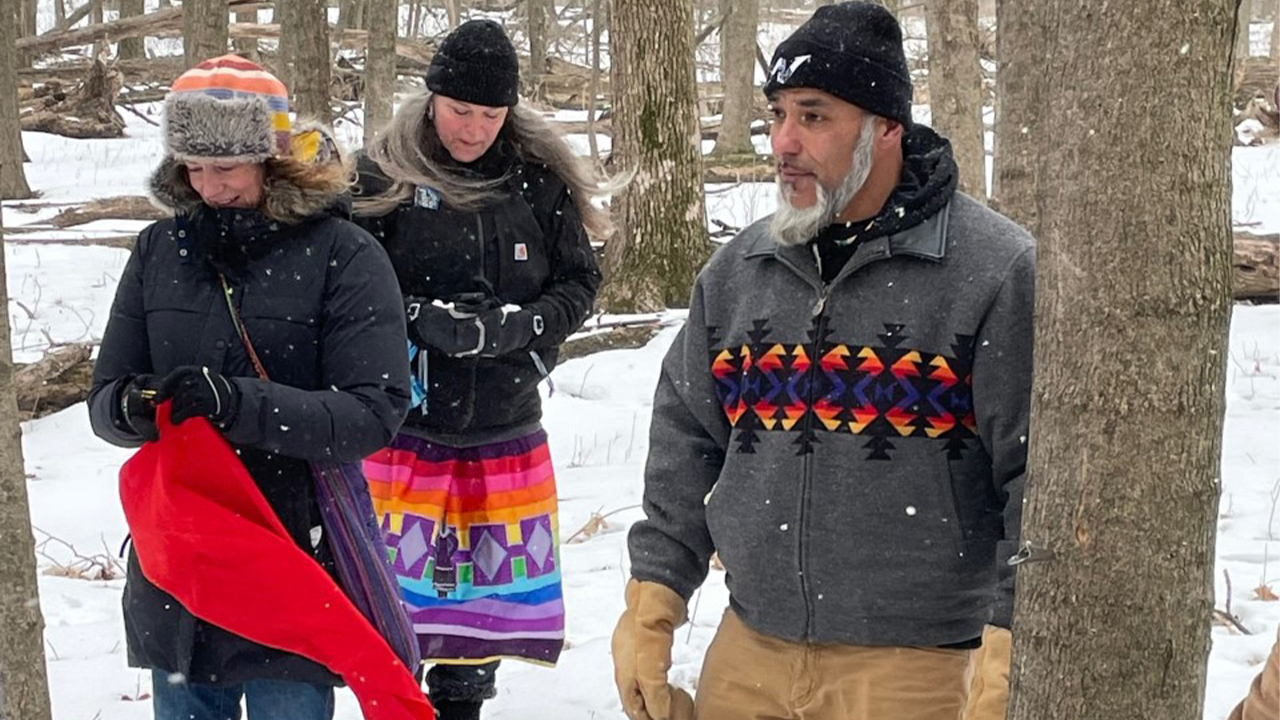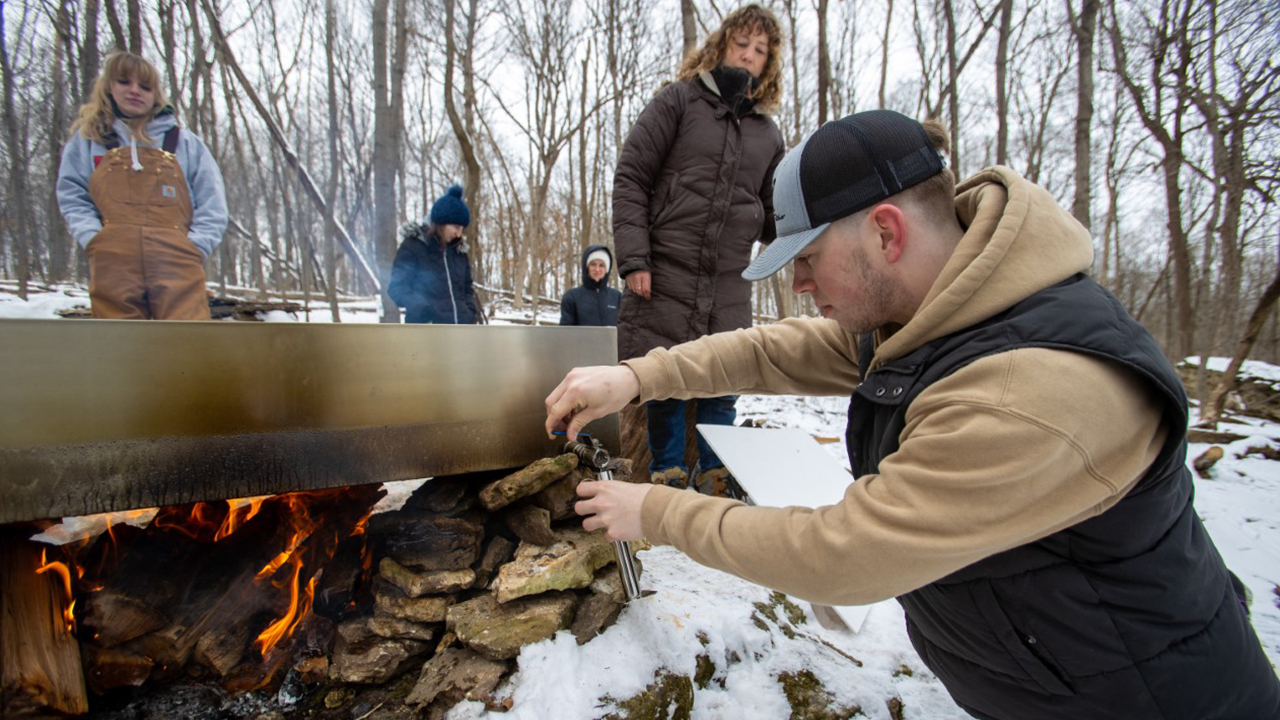

For the past several years, University of Wisconsin-Platteville students and faculty in the Environmental Sciences and Society and History programs have helped establish a sugarbush on the Platte Mound, by tapping maple trees to boil maple syrup and maple sugar as a way to connect with and learn about the history and land in important ways. On Wednesday, March 8, Jon Greendeer, former president of the Ho-Chunk Nation, will help mark the start of the sugarbush season with events open to the campus and community. Greendeer will deliver a guest lecture in Nohr Gallery, Ullsvik Hall on Land and Indigenous Knowledge at 11 a.m. At 2:30 p.m., he will lead the sugarbush opening event at the Platte Mound.
"Getting students out of the classroom and into the environment empowers them to see the world as their classroom," said Dr. Eugene Tesdahl, associate professor of history. "Indigenous perspectives from historical accounts, along with modern Indigenous perspectives from Jon Greendeer, reveal that maple syrup is much more than a delicious condiment. It forms part of an unbroken relationship between Indigenous communities and the land that informs and inspires UW-Platteville students."
Dr. Evan Larson, professor of environmental sciences and society, and Dr. Laura Dev, assistant professor of environmental sciences and society, have expanded the sugarbush project over the years. Dev has recently developed a course, The Land Ethic, in which students observe the land, participate in land practices and critically reflect on their own dynamic relationships with the land. They consider both tensions and collaborations between communities as they perform the labor to make maple syrup.
“The practice of receiving maple sap from the trees and transforming it into maple syrup can be seen as a delicious plant-human collaboration that is an important Wisconsin tradition for both Indigenous Peoples and settlers,” said Dev. “Through the sugarbush activity in the Land Ethic Practicum course, students learn not only how to make maple syrup, but also have the opportunity to learn from Jon Greendeer about the significance of this activity and the practices around it for the Ho-Chunk People.”
Indigenous sovereignty for nations like the Ho-Chunk and Ojibwe figure centrally into how faculty from History and Environmental Sciences and Society teach in the sugarbush. Shaun Stoeger, enrolled member of the Oglala (Pine Ridge, South Dakota) and Sihasapa (Cheyenne River, South Dakota) bands of the Lakota Nation and Native outreach specialist at UW-Platteville, supports initiatives like this.
“Many years ago, my elders counseled me on higher education and said ‘Anything that brings people back to the Earth is most important,’” said Stoeger. “I believe Dr. Dev’s and Dr. Larson’s courses, research and approach are aligned with our traditional lifeways and desperately needed in our world today. Connecting our current and future generations to the natural process of life runs contrary to the artificial world that has been created long before industrialization. It is this reconnection to the real world that holds the promise for our grandchildren.”
For more information about next week’s events, visit www.uwplatt.edu/events.